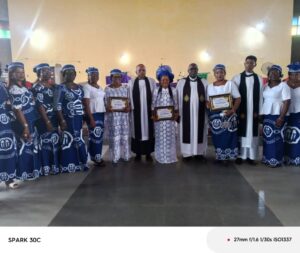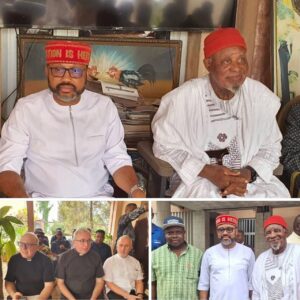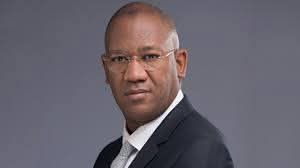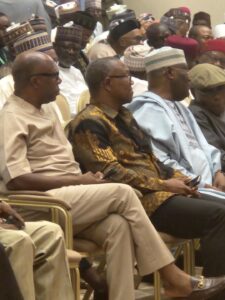Fr. Maximus’ Sermon: A Call to Authentic Christian Living

Val. Obienyem
A few days ago, I read somewhere about Fr. Maximus Okonkwo’s birthday. It was only during today’s sermon that I remembered it. May I take this opportunity to wish him a happy birthday and pray that he continues to remain faithful in the priesthood of Christ, as he demonstrated during today’s sermon.
The readings today are theologically rich, encompassing both the first and second readings as well as the Gospel. Fr. Maximus concentrated on the Gospel, focusing on Peter’s confession and Christ’s charge that anyone who wishes to follow Him must deny themselves, take up their cross, and follow Him. He spoke about carrying one’s cross, which stands in contrast to the gospel of prosperity preached by some contemporary pastors, who claim that following Christ precludes any form of suffering. Nothing is ever their portion!
As I was reflecting on this, I came across Bishop Godfrey Onah’s own reflection, which, as usual, is both eloquent and profound:(https://www.facebook.com/share/v/G7k3M6TCf5vZZnAi/?mibextid=WC7FNe).
I have noticed that many priests these days are addressing societal anomalies through their sermons, which is both necessary and encouraging. Fr. Maximus cautioned Christians against being deceived by the misinformation and false claims circulating, particularly on social media, under the guise of Christianity. He urged Christians to examine the “winds of doctrine” blowing around and to seek the truth of the Bible for themselves.
Besides reading the Bible, he encouraged Christians to read books that aid in the growth of faith. He mentioned Pope Benedict XVI’s book, “Jesus of Nazareth,” and Pope John Paul II’s encyclical, “Salvifici Doloris,” in order to understand the true meaning of human suffering. As Fr. Maximus said, drawing from the encyclical, When suffering is shared with the suffering of Christ, it can attain a transformative and redemptive significance.
I have always stressed the importance of priests preparing for their sermons. It is truly uplifting to hear a well-prepared sermon, even when delivered spontaneously. Rev. Fr. Prof. Boniface Obiefuna once mentioned to me that while priests may prepare their sermons, they might still be guided by the Spirit to alter the subject matter. This is understandable. Every Saturday night, Fr. Dr. Edward Anoliefo of the University of Nigeria sends me his sermons, either for my spiritual uplift or to demonstrate that he belongs to priests that do indeed prepare their sermons – or perhaps both.
As I was reading his sermon yesterday, he reflected on the readings and made practical and edifying deductions from them about the requirements of discipleship and its accompanying “scars.” Carrying one’s cross comes with scars of obedience, scars of enduring suffering, and so forth. Faith, he argued, is best manifested through actions that crest their own scars, “living out our faith through tangible deeds of service and love.” Most of what he discussed was also covered by Fr. Maximus. However, he also referred to the second reading, where James speaks about faith without good works. This was a central topic in our Catechism, where we say, “Okwukwe na enweghi ezi olu rulualu” (Faith without good work is dead).
As a Catholic apologist, this reading caught my attention because justification by faith alone was among the 95 theses that Rev. Fr. Martin Luther (as he was before his excommunication) proposed for debate. When the Reformation took place, he had the opportunity to expand on this idea. For Luther, good works were approved, but he denied their efficacy for salvation. “Good works,” he said, “do not make a good man, but a good man does good works.” And what makes a man good? Faith in God and Christ. How does a man come to such saving faith? Not through his merits, but as a divine gift granted, regardless of merits, to those whom God has chosen to save.
This issue arises from reading the Bible in a disjointed manner and arriving at incomplete conclusions. This was the case made by Catholics when the Reformation created the impression that the Bible should be freely interpreted by the individual. What is the state of Christianity today when ambiguous and seemingly contradictory passages in Scripture are left to the free interpretation and judgment of each individual? This is why the Bible is often torn to pieces by countless minds, and Christianity is fractured into a multitude of warring sects.
Reflecting on this topic, I am reminded of Mr. Udunni’s CRK classes in the Seminary and Kwesi Dickson’s book where he treated the subject of Justification. Pentecostals who do not read the Bible with the right dept of understanding as Catholics might, after reading Paul, conclude that justification is by faith alone (“sola fide”), as propagated by Luther. However, for Catholics, it is by faith and good works. This understanding comes from reading the Bible holistically and marrying Paul with the position of James to achieve the correct balance.
So, as the reading from James suggests, I hope it will serve as an opportunity for Christians to understand the place of both works and faith in salvation. As James says, faith without good works is dead.









